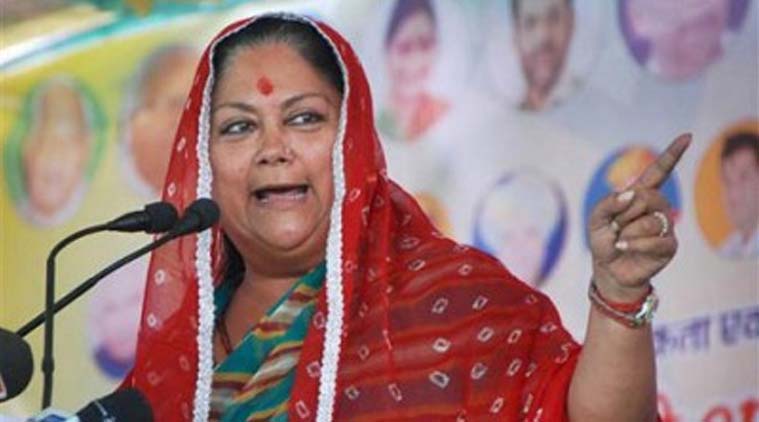President nod to Apprentices Bill pushes Raje’s skill boost plan
The assent was given on December 27, and a letter from the Home Ministry was despatched on Tuesday.
 The amended central Act is set to put Raje on the road to delivering on her promise of 15 lakh jobs for the state.
The amended central Act is set to put Raje on the road to delivering on her promise of 15 lakh jobs for the state.Giving a fillip to Rajasthan Chief Minister Vasundhara Raje’s pet skill development initiative, President Pranab Mukherjee has cleared the Apprentices (Rajasthan Amendment) Bill, 2014.
The amended central Act, along with the recent labour law reforms, is set to put Raje on the road to delivering on her promise of 15 lakh jobs for the state.
The amendment allows greater autonomy to the state government to decide on the number of seats, duration of training and curriculum, which were earlier laid down by the Centre. Officials said the archaic law was restrictive, and limited the opportunity for skill development. The state government currently has a sanction of 12,500 seats, which is likely to increase manifold now, they said.
“In several trades, the duration of training is unnecessarily long, when it can be done in a much shorter time. We will now be able to restructure all of that, and make it more relevant for both industry and labour,” a senior official said.
“The new Act will give companies greater flexibility to take a smaller number of apprentices in some trades, and fill up the residuary vacancies in other trades, even though it will be mandatory to fill 30 per cent of vacancies in any particular trade.”
The amendment also fixes the minimum daily wage as the mandatory minimum stipend, which will almost double the current compensation for apprentices. The amended law proposes that the state government would bear all expenses of every successful apprentice in companies that employ up to 250 employees. At bigger employers’, the state government will bear 50 per cent of expenses on successful completion of apprenticeship.
The amendment also puts greater onus on the state apprentice adviser who will now be accountable for deciding any dispute over the apprentice agreement between industry and labour. State apprentice councils will henceforth be able to choose whether they want to be affiliated to the Central Council, and the state council will be empowered to conduct its own exams.
The assent was given on December 27, and a letter from the Home Ministry was despatched on Tuesday. Officials said that a copy of the letter is yet to be received by the state government, and once it arrives, a notification marking out the changes would be issued.
Welcoming the move, Raje told The Indian Express, “Our efforts in re-engineering labour and apprentice laws are aimed at creating a habitat for employment opportunities to grow an ecosystem that nurtures entrepreneurship. We are trying to undertake a slew of legislative as well as adminsitrative measures to bring this about.”
The Prime Minister’s Office has written to all states citing the example of Rajasthan, and forwarded copies of the amended Factories Act, Industrial Disputes Act, Contract Labour (Regulation and Abolition) Act and Apprentices Act.
“The demographic dividend of our country has to be harnessed with the goal of providing skills and jobs to millions of our people.You may be aware that the government of Rajasthan has taken measures, by amending some of the labour sector related laws, to facilitate further investment and job creation. With two-third of Indian population below the age of thirty-five, you may appreciate that it is our collective responsibility to carry forward the agenda of providing skill and appropriate jobs to millions of youth through necessary legislation,” the letter said.
The Rajasthan government has emerged as the frontrunner in the skill development project, and has the largest share in skilling one lakh youth in a year as part of the Centre’s Deen Dayal Upadhyay Gramin Kaushal Yojana.
It became the first state to launch the programme, and started the first skill development centre in Udaipur. The state has short-term programmes in 30 sectors of the economy, aims to take it to 200 by March.
Currently, 3,400 youth are in training. Raje recently announced a skill development university, and has tied up with Singapore for a training partnership.





- 01
- 02
- 03
- 04
- 05


























